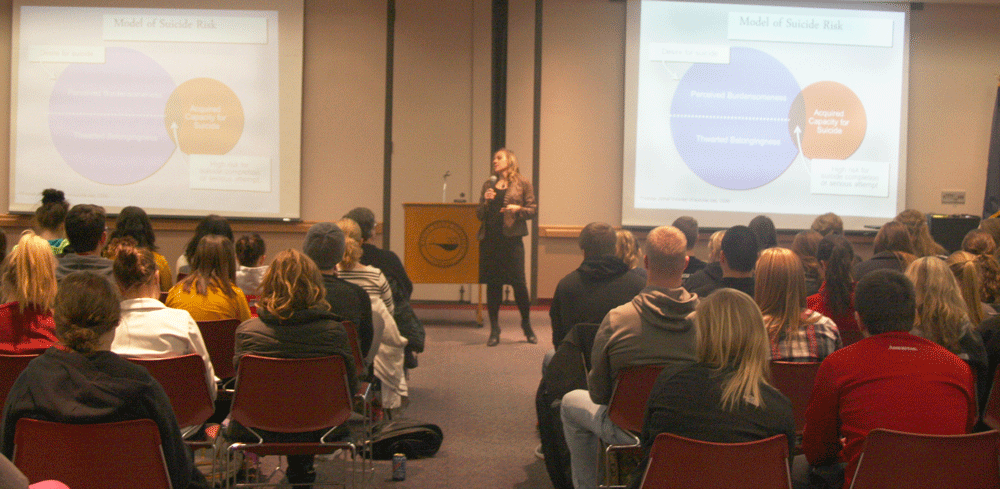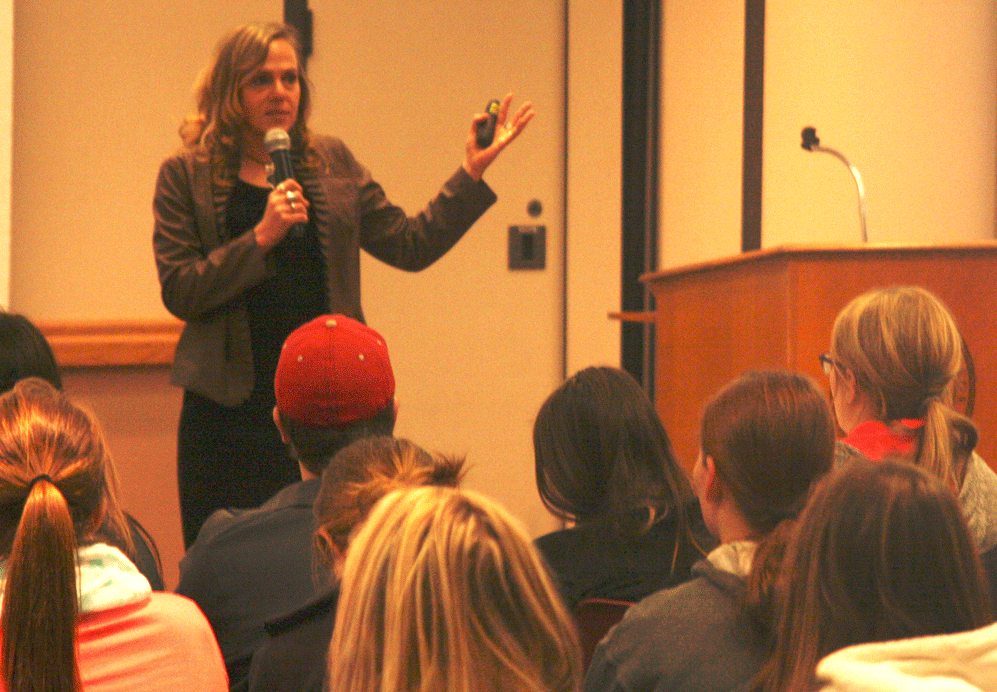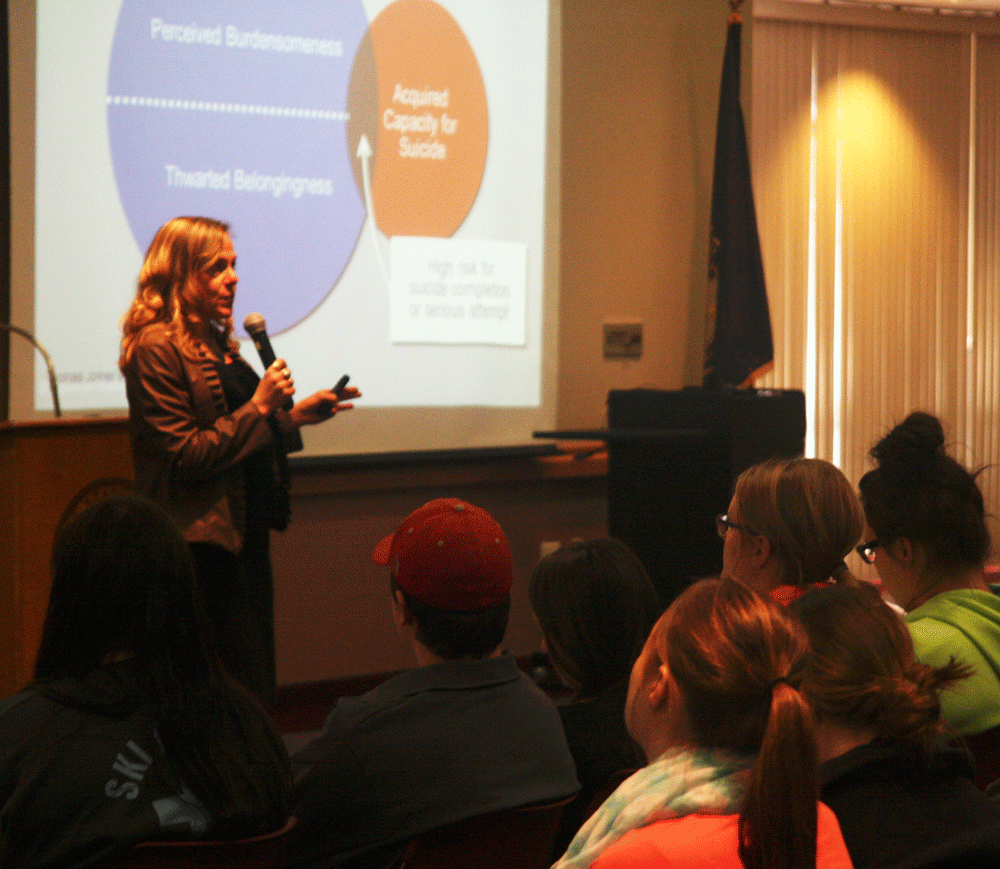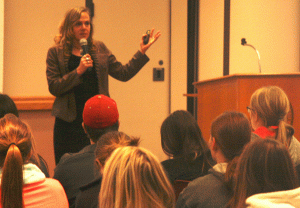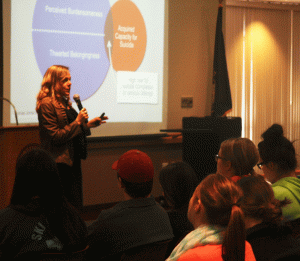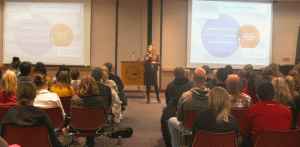Flexing your mental muscles
Dr. Spencer-Thomas promotes mental resiliency
February 5, 2015
Look around you for a split second, and at all the people in the room you’re currently in.
Now, imagine half of those people missing.
As drastic as the statistic may appear, one in every two people have considered suicide at some point in time.
Psychologist, mental health advocate and survivor of her brother’s suicide, Dr. Sally Spencer-Thomas came to Wayne State College last Thursday to promote emotional resiliency.
Spencer-Thomas explained to students how sometimes life may feel like you’re “up on the high wire.” After planting that full weight on a high wire, there’s about three different emotions that a person may feel.
To some people, this may be an exciting feeling, and they feel courageous and bold. Other people may struggle, as there are unexpected things coming at them and they begin to feel overwhelmed. Then there’s the other group of people who feel stuck on the high wire, with nowhere to go.
“Soar on a journey of a life time,” Spencer-Thomas said after every student was handed a long, colored feather.
Rubbing (brushing) the feather the opposite direction may cause it to look and feel different. This represents the struggles and obstacles that people may encounter. After rubbing (brushing) the feather back in to place, it may look a little different, but almost identical to its original form.
Disregard the obstacles that may come your way, because in the end, your life will be a little different than what it originally was, if not identical.
The feather was given to students as a reminder to embrace life like a bird. They are bold team players who soar the skies.
Mental resilience helps people bounce back from things that may come their way. Unfortunately for others, they may not have that strong “mental muscle.”
There are 200 known factors of suicide, many of them dealing with desire for suicide or the acquired capacity for suicide.
People may feel like a burden on others, so they want to get out of the way. They may have lost a loved one, such as a relative, friend or spouse, and experience thwarted belongingness. Some are unafraid of taking that risk. Others experience endurance. They work so hard and feel like they’re not getting anywhere.
“Our ‘perfect’ masks start to fall apart,” Spencer-Thomas said. “We cover up the cracks, so they remain looking perfect as we’re breaking inside.”
Spencer-Thomas suggested to “be bold” and take on challenges, even if we experience fear. “Belong, because together we are better,” Spencer-Thomas said.
It’s good to surround yourself with people who will be there for you when you need them, people you can trust. Have physical, mental, spiritual, social and emotional wellness, be well and believe, because “you never know what is on the other side of distress,” she said.







